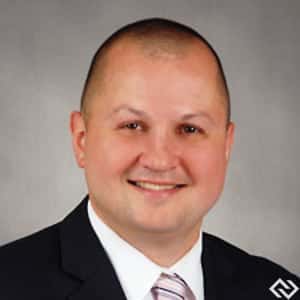Patient is Killed From Undiagnosed Gastrointestinal Leak Following Hernia Surgery
Updated on
This case involves a middle-aged male patient in Missouri with chronic heartburn as well as a large hernia. He was taken to the OR for a procedure to repair the hernia. At the time of the surgery, it was found that the patient had a unique anatomy that required the placement of a mesh implant to repair the hernia. A few days later, the patient developed shortness of breath and a fever. That night he also developed tachicardia. He was started on medication for the tachycardia, however no sepsis workup was done. The following day, he developed respiratory failure that required intubation. He was seen by an infectious disease physician who recommended a CT scan, as well as a change in the patient’s antibiotics. Nevertheless, he continued to deteriorate and underwent a CT scan which showed a gastroesophageal leak. The patient underwent surgery to repair the leak, however he eventually died while in the hospital.
Question(s) For Expert Witness
1. How often do you perform hiatal hernia surgery?
2. What are common complications of a hiatal hernia repair?
3. What is the differential diagnosis for a patient that is short of breath, tachycardic, and has a fever following a hiatal hernia repair?
Expert Witness Response E-008057
 I am a minimally-invasive general surgeon specializing in upper gastrointestinal surgery. I have extensive experience in the surgical repair of hiatal hernias - I perform hiatal hernia surgery on a weekly basis, generally 1-3 cases per week. Known complications of hiatal hernia repair are gastric and esophageal perforations (as in this case), vagal nerve injury, and splenic injury being the most common. For a patient that is short of breath, tachycardic and febrile following a hiatal hernia repair, it is assumed that they are suffering from a leak or perforation until proven otherwise. Other things in the differential diagnosis include pneumonia, pulmonary embolism, atelectasis, or cardiac arrhythmias. Unfortunately, this was a tragic outcome for this patient. Based on the description of the patient's anatomy, that implies a large hiatal hernia and possibly a difficult dissection. I'm not sure why a Collis gastroplasty or other esophageal lengthening procedure was not done. That would have allowed for the addition of a fundoplication which may have covered the unrecognized injury.
I am a minimally-invasive general surgeon specializing in upper gastrointestinal surgery. I have extensive experience in the surgical repair of hiatal hernias - I perform hiatal hernia surgery on a weekly basis, generally 1-3 cases per week. Known complications of hiatal hernia repair are gastric and esophageal perforations (as in this case), vagal nerve injury, and splenic injury being the most common. For a patient that is short of breath, tachycardic and febrile following a hiatal hernia repair, it is assumed that they are suffering from a leak or perforation until proven otherwise. Other things in the differential diagnosis include pneumonia, pulmonary embolism, atelectasis, or cardiac arrhythmias. Unfortunately, this was a tragic outcome for this patient. Based on the description of the patient's anatomy, that implies a large hiatal hernia and possibly a difficult dissection. I'm not sure why a Collis gastroplasty or other esophageal lengthening procedure was not done. That would have allowed for the addition of a fundoplication which may have covered the unrecognized injury.
About the author
Joseph O'Neill
Joe has extensive experience in online journalism and technical writing across a range of legal topics, including personal injury, meidcal malpractice, mass torts, consumer litigation, commercial litigation, and more. Joe spent close to six years working at Expert Institute, finishing up his role here as Director of Marketing. He has considerable knowledge across an array of legal topics pertaining to expert witnesses. Currently, Joe servces as Owner and Demand Generation Consultant at LightSail Consulting.
Subscribe to our newsletter
Join our newsletter to stay up to date on legal news, insights and product updates from Expert Institute.
Sign up nowFind an expert witness near you
What State is your case in?
Subscribe to our newsletter
Join our newsletter to stay up to date on legal news, insights and product updates from Expert Institute.



